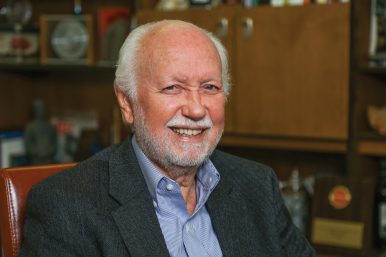The board of directors of Centreville-based defense contractor Parsons Corp. has elected President and CEO Carey A. Smith as its chairwoman, effective April 14, the company announced Monday.
Smith will replace Charles “Chuck” Harrington, the current executive chairman, who will retire when his board term expires in April. Additionally, the board elected Steven F. Leer to serve as lead independent director, effective April 14. He will succeed James “Jim” McGovern, who has served on the board since 2005.
“Carey Smith has proven herself as an exceptional leader throughout her career and during her successful tenure with Parsons,” said Leer, in a statement. “She is the right person to serve as our next chairwoman and to lead Parsons into the future. We are confident in her ability to capitalize on the growth opportunities ahead for the company and to bring together Parsons’ unique capabilities into integrated solutions that deliver value for our customers.”
Smith joined Parsons in 2016 as president of its federal solutions business unit and was promoted to chief operating officer in 2018, then became president and COO in 2019, helping to take the company public. She was appointed president and CEO in July 2021 and elected to the board of directors in December 2020.
“I’m honored to be elected Parsons’ chairwoman, and grateful for the trust and confidence of our board and of our workforce,” Smith said in a statement. “Every day, our global workforce is delivering integrated solutions and services in a complex security environment and a world of digital transformation. We are creating the future of national security and critical infrastructure by leveraging advanced technologies across these domains. I’m proud to lead and support my colleagues in that mission.”
Founded in 1944, Parsons employs more than 16,000 people in 24 countries and specializes in defense, intelligence, security and infrastructure engineering, focusing on technology.


